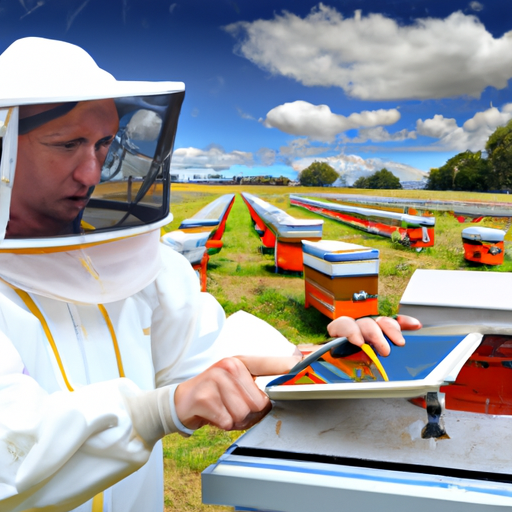Technology in Beekeeping: Innovation, Progress, and Potential
In the world that is constantly developing and evolving due to technology, every industry, including beekeeping or apiculture, has to adapt and take advantage of the innovation to ensure its sustainability and efficiency. This article provides an in-depth analysis of the revolutionary changes technology has brought to the beekeeping industry.
Technological Advancements in Apiaries
New technologies spanning from smart beehives to tracking applications are the new frontier in apiculture, offering a wide range of benefits that significantly improve the practices of beekeeping. For instance, smart beehives, equipped with sensors, provide real-time data about the conditions inside the hive including temperature, humidity, and weight of the hive. This enhances beekeepers' ability to effectively manage their bees, therefore improving productivity and health of the bee colonies.
Big Data, AI, and Tracking Solutions in Beekeeping
Technological advancements have provided beekeepers with formidable tools such as big data, artificial intelligence (AI), and tracking systems. Big data and AI can interpret and analyze vast quantities of data collected from the hives, offering insights on optimal conditions for bee health and honey production. Tracking solutions contribute to monitoring the movements and behavior of bees, thus allowing for early detection of possible diseases and complications.
Positive Impacts and Potential Risks
The introduction of technology has undeniably provided numerous advantages in beekeeping. It has contributed to increased honey yield, healthier bees, and reduced loss and disease outbreaks. However, these technologies also bring potential risks. For instance, smart devices can fail or be hacked, potentially resulting in false data, affecting decision-making, and endangering the hives. Therefore, careful management and use of technology are imperative in beekeeping.
Evaluation of Technology's Influence
Overall, the integration of technology into beekeeping has proven to be largely beneficial. Amid some technical glitches, technological advancements have undeniably helped improve honey yield, promote healthier bees, reduce losses and disease instances, and, more importantly, have made beekeeping more efficient and manageable.
Future Implications
As technology continues to evolve, its application in beekeeping is expected to grow and further revolutionize the industry. Emerging technologies like drone bees hint at a future where artificial pollinators could assist or replace natural honeybees who are facing numerous environmental challenges. Therefore, these advancements hold the potential of ensuring the sustainability of the beekeeping industry.
However, it is critical to continue evaluating these tools, protect the privacy of bee data, and ensure that growing reliance on technology does not create vulnerabilities that could harm the industry. Simultaneously, these attempts should carry out with the breed of preserving traditional beekeeping methods that have been perfected over generations.

















Comments
Leave a Comment